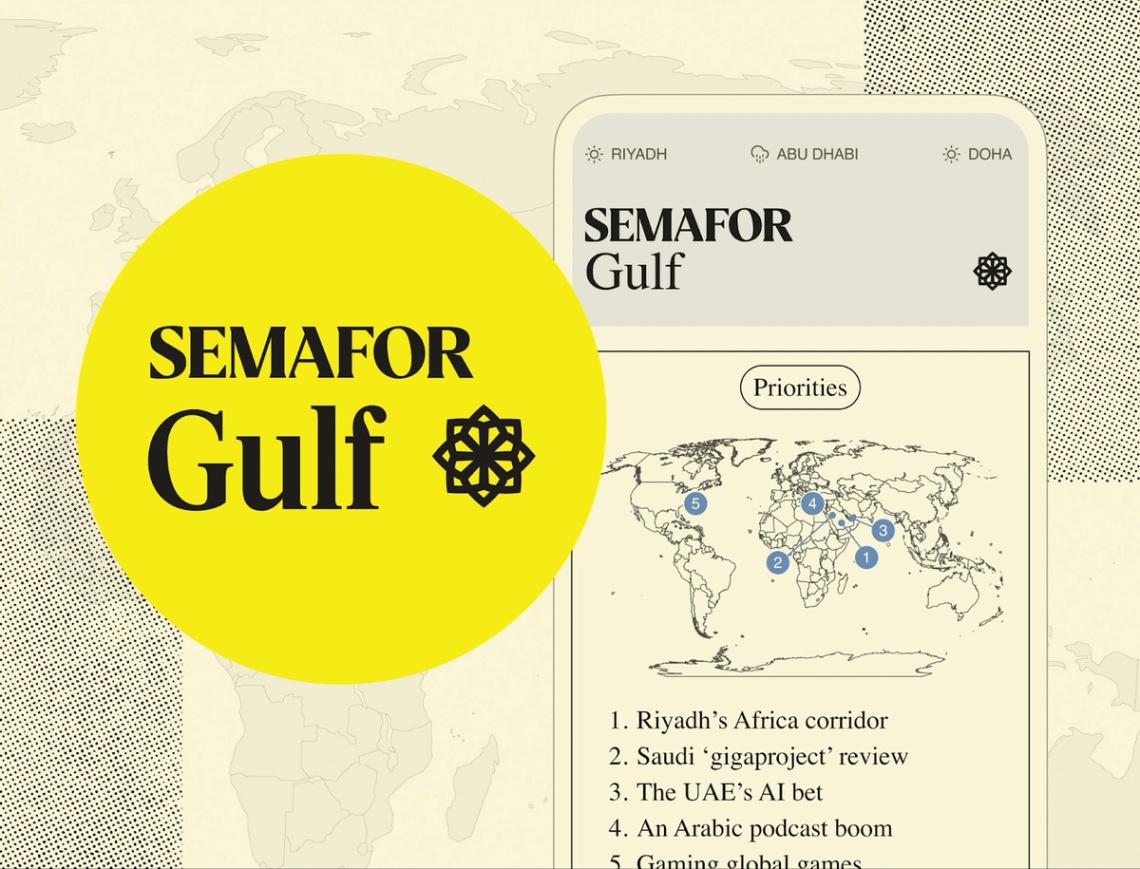 We are excited to share that Semafor will launch in the Middle East this September, marking a major milestone in our global expansion strategy. Launching on September 16th, Semafor Gulf will feature original reporting and thrice-weekly newsletter that will examine how the region’s transformation, and how its financial, business and geopolitical decisions shape the world – from culture and investment to infrastructure, climate and technology. The platform will serve as a fresh, new destination for regional audiences, delivering Semafor’s signature independent, intelligent and transparent journalism to leaders in the Gulf and around the world. The new platform will be led by veteran journalist and editor Mohammed Sergie. Sergie, who began his career in the UAE, previously established the Saudi Arabia bureau for Dow Jones in 2008, covering the major economic, social and political stories in the kingdom. He later served as an editor at Bloomberg News where he shaped coverage of energy and commodities in the region and was the company’s sole reporter in Qatar. Semafor Gulf will launch with a team of staff reporters as well as columnists covering Saudi Arabia and the United Arab Emirates and Qatar, and will continue to expand through 2025. You can sign up for Semafor Gulf here. |